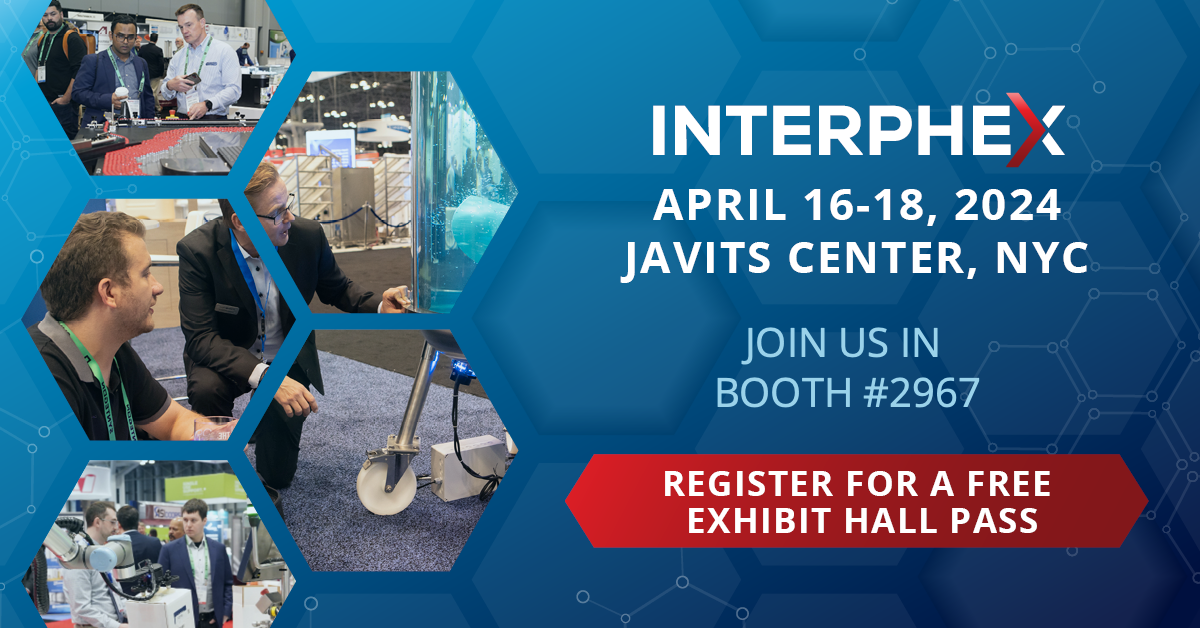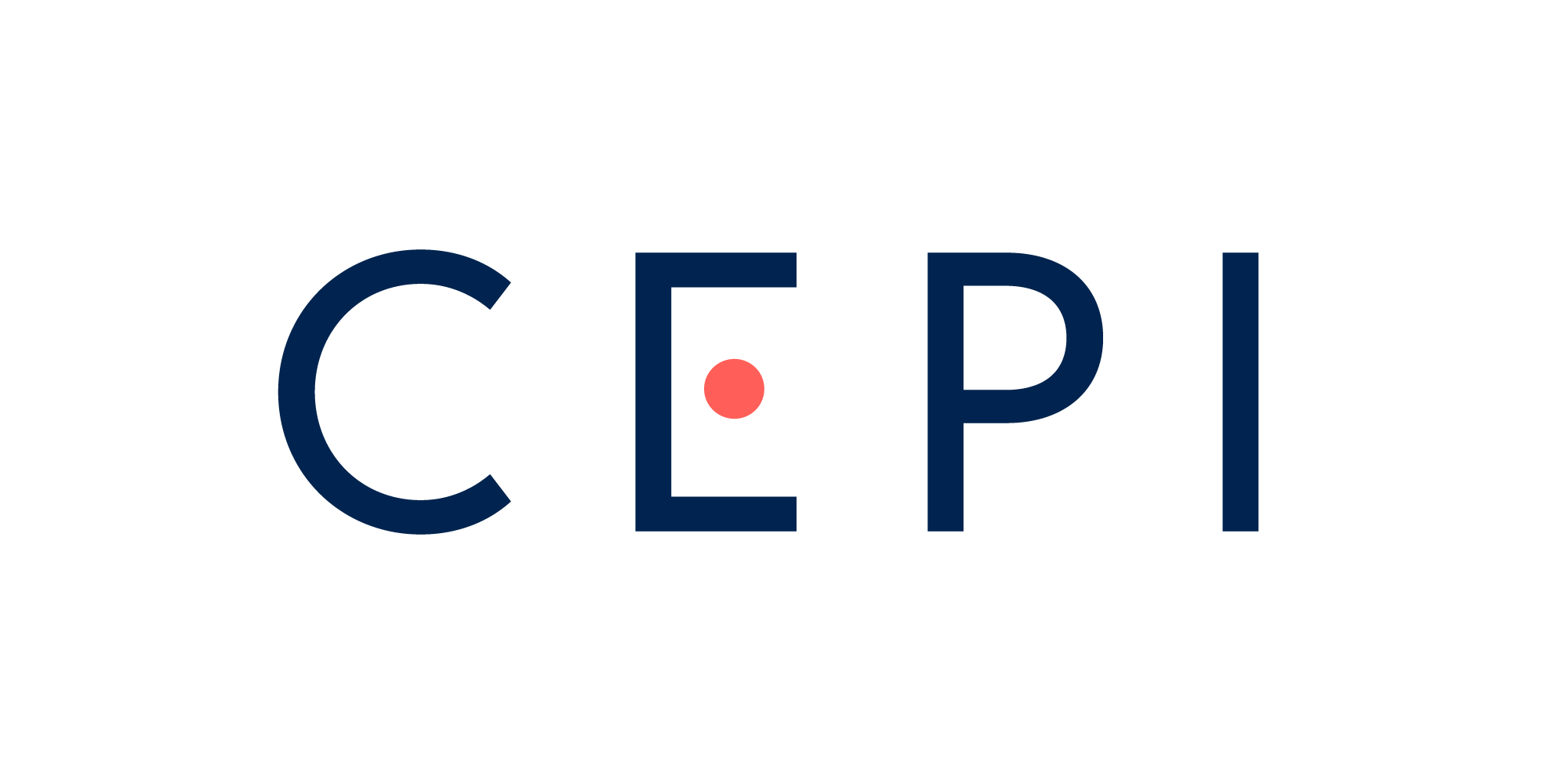The RheaVita team is ready for the premier pharmaceutical manufacturing event: INTERPHEX 24
Month: March 2024

Meet us at INTERPHEX 24
Discover our Next Generation controlled, continuous RheaLyo™ freeze-drying technology.
Check out our booth #2967 to watch a live demo.
From 16th to 18th April, our process specialists will be glad to present the latest developments:
RheaLyo™ mono freeze-dryer: our Single Vial Unit for R&D. Fast formulation and process development.
RheaLyo™ multi freeze-dryer: our machine for non-GMP stability batch productions.
RheaLyo™ GMP-Flex™ production lines: for clinical and commercial productions.
Get exclusive insights on RheaVita’s way to Continuous Manufacturing and discover how this technology drives your economics, quality and flexibility.
RheaVita: we take the pain out of biopharmaceutical freeze-drying.
For the most up to date news, please follow us on LinkedIn via the link below
Ghent University scientists launch CEPI-funded project ‘spin-freezing’ vaccines
Month: March 2024
New ‘spin freezing’ technique could enhance future mRNA vaccines.
11 March 2024, OSLO, Norway and GHENT, Belgium – A top-ranking public research university in Belgium has received funding from CEPI to explore whether a pioneering vaccine stabilisation technique could end the need for frozen storage of mRNA vaccines and support a fast and scaled-up response to future outbreaks in as little as 100 days.
Ghent University will receive up to US $1.9 million to test the performance of optimised mRNA vaccines, developed on the university’s specialised mRNA Galsomes platform, in preclinical models after ‘spin-freezing’ the vaccines. Pioneered by RheaVita, a spin-off company of Ghent University, spin-freezing is a novel alternative to the traditional freeze-drying method. The research will be supported by Flanders Institute for Biotechnology (VIB).
Spin-freezing: the next vaccine-drying frontier?
In freeze-drying, certain types of vaccines and other products including diagnostics, therapeutics as well as certain foods, are dehydrated and temporarily stored as a powder at heat-stable temperatures to inhibit spoilage, extend shelf life and increase access to these products in remote or low-resource settings (as the products no longer require frozen storage).
The new technique, spin-freezing, could offer additional benefits to the traditional freeze-drying method and therefore has the potential to become a preferred technique for vaccine makers.
Spin-freezing works by rapidly rotating vials of vaccine along an axis while the flow of an inert and cold gas solidifies the vaccine into a thin powder film around the side of the vial. This allows for a much faster drying process and offers manufacturers more control of the process, which can help improve the quality of vaccines being produced.
Vaccine producers can also spin-freeze vaccines continuously, vial by vial, thereby reducing expensive and time-consuming bottlenecks and delays that can commonly occur during traditional freeze-drying where vaccines are manufactured in batches. While batch manufacturing has long been the industry standard, continuous manufacturing could offer improved efficiency, with raw materials constantly fed into the production line and collected at the end which could help bring vaccines to market more quickly. It could also reduce labour and waste to help with cost savings.
Altogether, these potential benefits could push forward the 100 Days Mission, a goal spearheaded by CEPI and embraced by the G7 and G20, to accelerate vaccine development to around 100 days from identification of a future virus and stop an outbreak before it becomes a pandemic.
“Innovators are increasingly looking to meet the challenge of rapidly scaling up of thermostable mRNA vaccine doses for wider global delivery” explains Ingrid Kromann, Acting Executive Director of Vaccine Manufacturing and Supply Chain at CEPI. “In addition to making mRNA vaccines thermostable, spin-freezing has the potential to flip the usual batch production process utilised by pharmaceutical manufacturers and instead offer continuous manufacturing, which, if successful, could promote fast and flexible mRNA vaccine production in response to future outbreaks.”
Dr. Ine Lentacker and Prof. Thomas De Beer, Ghent University, said: “We are currently validating our mRNA vaccine platform, mRNA Galsomes, as a prophylactic vaccine against various infectious diseases. Leveraging the innovative continuous freeze-drying technology and expertise in biomolecule production and analytics at Ghent University, we are excited that this collaboration between Ghent University and CEPI provides us with a great opportunity to improve the thermostability of mRNA Galsomes. We believe that our efforts to address challenges posed by cold chain distribution could significantly contribute to equitable access to mRNA vaccines globally.”
For the most up to date news, please follow us on LinkedIn via the link below
